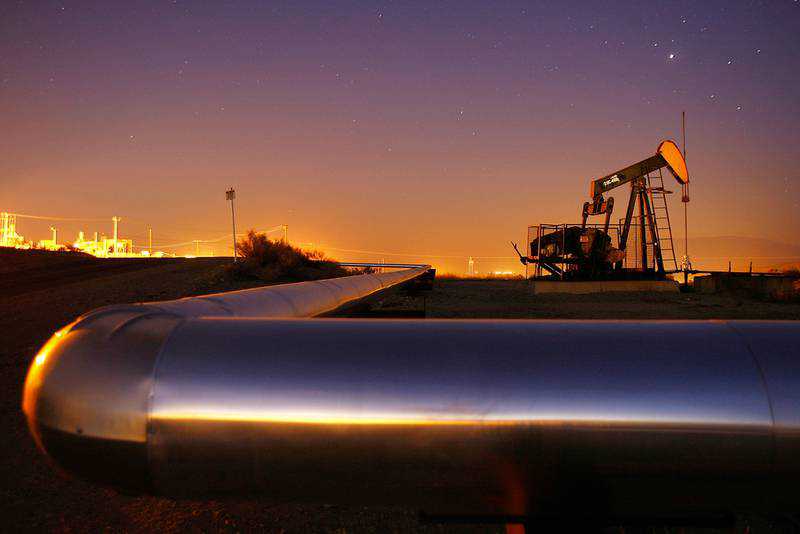Rapid economic rebound underpins higher oil prices, TotalEnergies chief says
06 October, 2021

The sharp rebound in the global economy from the Covid-19 pandemic has brought greater demand for oil than expected and driven prices higher, the head of French energy major TotalEnergies said.
Patrick Pouyanne, chairman and chief executive of TotalEnergies, told the Energy Intelligence Forum that the recovery had brought "high growth ... too high".
"I think the global system is not designed to absorb suddenly a 6 per cent or 7 per cent growth,” Mr Pouyanne said. “This is a short-term impact and we will get out of it.
“Opec in the oil market is playing a certain role, very prudent, very reasonable,” he said.
The global economy has bounced back strongly and is expected to expand 6 per cent this year, the International Monetary Fund said in July. The IMF will release its new global forecast next week in its updated World Economic Outlook update. Central banks in some developed economies are guard because of rising inflations which has led to a sharp rise in food prices. Shipping costs have also surged.
The effect of the economic bounce back has not only affected the energy market. “We see that in many commodities," Mr Pouyanne said. “The global supply chain is not designed to accommodate such growth.”
Despite the spread of the Delta coronavirus strain, demand in 2021 is expected to grow by 6 million barrels per day, with global consumption hitting 96.7 million bpd, according to Opec data released in September.
The oil producers' group expects demand for 2022 to exceed pre-pandemic levels, reaching 100.8 million bpd.
The production is also rising this year as the Opec+ group of producers, led by Saudi Arabia and Russia, is bringing 2 million bpd back to the markets in 2021.
The group stuck to its plan to increase production by 400,000 barrels per day of supply for November, which pushed oil prices even higher.
Oil prices climbed on Tuesday, with US crude hitting its highest since 2014 and Brent, the benchmark for more than half of the world’s crude, rising to a three-year high.
Brent was trading 1.77 per cent higher to 82.70 a barrel at 10.13pm UAE time, while the WTI rose 1.88 per cent to 79.08 a barrel.
Mr Pouyanne said high gas prices from strong demand, especially from Asia markets and China, has also driven oil prices as customers look to alternative fuels for power.
Green transition affecting oil production levels
The energy transition pressure is also at play in the market as some of the countries driving the gas prices are turning from coal to gas, he said.
Although demand for oil is on the rise, producers are struggling to lift production amid a drop in investments as they cut capital expenditure during the pandemic.
“You have pressure to invest less, not only because of energy transition but Covid as well,” Mr Pouyanne said.
“I suspect it might continue … it might be longer than we think. The energy system is a complex system and people should understand that everything is interconnected.”
Opec expects oil to dominate the global energy mix until 2045, as energy demand is set to increase to 352 million barrels of oil equivalent per day by 2045 from 275.4 million boepd in 2020.
It estimates the global oil sector requires a total of $11.8 trillion in investments until 2045, 80 per cent of which are needed in the upstream sector of the Industry.
Downstream and midstream investment – needed to expand and maintain the associated refinery, storage and pipeline systems required to bring oil to market – require another $1.5tn and $1.1tn, it said in its oil outlook report in September.
Mr Pouyanne said a lack of investments would ultimately result in supply crunch “driving prices through the roof”, which is not good for anyone, even for developed economies that are pushing to cut investments into hydrocarbons.
Source: www.thenationalnews.com
